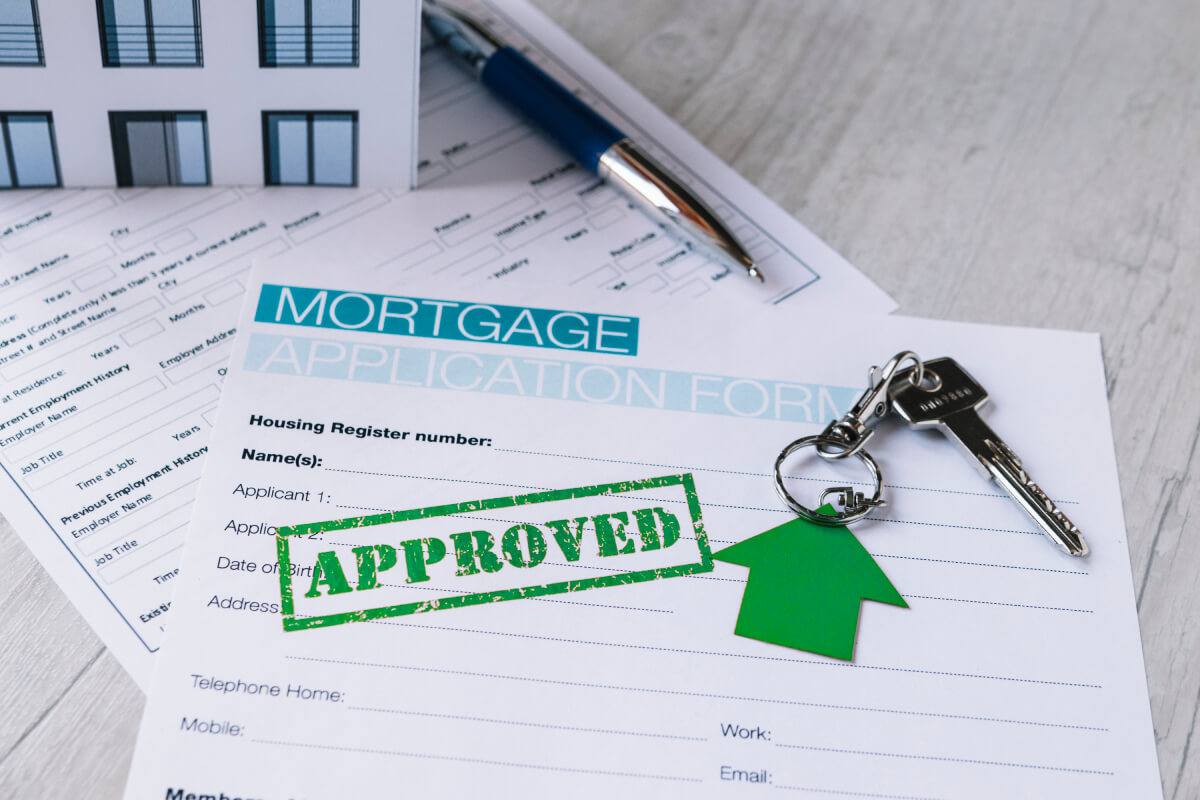"The best investment on earth is earth."
Are you in the process of buying or selling a home? If so, you have probably heard the term “closing date” often thrown about. The closing date on a house is the last stage in the home buying or selling process, and it can be exciting and nerve-wracking for all parties involved. But what exactly is the closing date, and what can you expect when the big day arrives?
This blog article covers the closing date in detail, including what it is, why it matters, and the steps you can take to ensure a successful closing.
Table of Contents
What Is the Closing Date on a House?
The closing date on the house is a significant milestone in the home-buying process since it is the last step before the new owners get the keys. On this day, all parties involved in the sale convene to finalize the transaction and transfer ownership of the property. However, the closing process, which involves some steps, documents, and parties, can be challenging and confusing for buyers and sellers. As a result, both buyers and sellers must understand what to expect on the closing day and how to prepare for it.
Closing date processes include reviewing and approving the Closing Disclosure, finalizing the mortgage and funds, and signing all appropriate paperwork. During this process, the buyer will also conduct a final walkthrough of the property to ensure that everything is in order and that there are no surprises.
The closing date can be complex and challenging, but it is also a day of celebration and accomplishment. You can ensure that the process goes well and that you can fully enjoy this wonderful time by being aware of what to expect, the affecting factors, and how to prepare for the closing date.
Steps Involved in Preparing for the Closing Date
Preparing for the closing date is an essential step in the home-buying process. To ensure everything runs smoothly, you should review the contract and identify any closing contingencies that must be met before the transaction becomes legally binding. These contingencies may include:
Home inspection
A home inspection involves hiring a professional inspector to evaluate the home’s condition and identify potential issues. The inspector will examine the home’s structural integrity, electrical and plumbing systems, heating and cooling systems, roofing, and other important components. They will provide a detailed report outlining any issues that must be addressed before closing.
Appraisal
An appraisal is a professional estimate of the value of a property, typically required by a mortgage lender to ensure that they’re not loaning you more money than the home’s value. It evaluates the home’s size, condition, location, and other factors to determine its market value. This information helps you and your lender ensure you pay a fair home price.
Loan documents
Before your mortgage can be finalized, you must provide your lender with several documents demonstrating your income, assets, and creditworthiness. Such documents include pay stubs, W-2 forms, bank statements, tax returns, and other financial records.
Homeowner’s insurance
Homeowner’s insurance protects your house and personal assets against damage or loss caused by fire, theft, or natural disasters. It is required by your lender to ensure their investment in your home is protected. Before closing, you must choose a homeowner’s insurance policy and provide proof of coverage to your lender.
Conducting a final walkthrough of the property
A few days before the closing date, a final walkthrough of the property is typically conducted to ensure that it is in the same condition as when the sale agreement was signed. The buyer should verify that any agreed-upon repairs or improvements have been made and that there are no new issues with the property.
Signing all necessary documents
On the day of closing, the buyer and seller will sign various documents related to the property sale, such as the deed, bill of sale, and mortgage note. Before signing, these documents must be thoroughly reviewed to ensure that all information is accurate and there are no errors or discrepancies.
Paying closing costs and fees
At the closing date, the buyer should pay closing costs and fees associated with the sale of the property. These costs may include appraisal fees, title insurance, and attorney fees.
What to Expect on the Closing Date?
The closing date on the house is an exciting time, but it can also be a complicated process. If you are nearing this date, it is vital to know what to expect so that you are ready for the big day.
Order of events during the closing
There is a standard protocol that is followed throughout the closing process. First, the parties will review and sign all necessary documents, including the Closing Disclosure and the deed. Next, the funds will be disbursed to the seller, and the deed will be recorded. Finally, the buyer will receive the keys to their new home.
Parties involved in the closing
Depending on the sale, the closing will involve several parties, including the buyer, seller, attorney/real estate agent, title company/escrow company representative, lender representative, and home inspector. However, if the seller has already signed the deed and transfer documents, they may not need to be present at the closing.
Roles of the parties involved in the closing
The parties involved in the closing will have a specific role to play: the buyer will review and sign documents, the seller will sign the deed, the attorneys or real estate agents will ensure legal requirements are met, and the title company representative will oversee the transfer of funds and the recording of the deed.
Documents required for the closing
It is essential to have the necessary documents before the closing, such as a copy of the sales contract, proof of homeowner’s insurance, and any mortgage documents. Other required documents may include a Photo ID, Closing Disclosure, outstanding documents or paperwork requested by the title company or mortgage loan officer, and a certified or cashier’s check for closing costs.
Disbursement of funds
The disbursement of funds is a vital part of the closing process, which involves the transfer of funds from the buyer’s lender to the title company or escrow company. This will distribute the funds to the seller, real estate agents, and any outstanding liens or fees.
Time and location of the closing
The time and location of the closing will be informed in advance to all parties, typically several days or weeks before the closing date. The closing will occur at a designated location, such as a title company or attorney’s office, and will take a few hours to complete.
Factors Affecting the Closing Date
The closing date on a home purchase can be affected by several factors, some of which are within the parties’ control and others not. As a buyer or seller, it’s essential to be aware of these factors to avoid unnecessary delays and ensure a successful closing.
Loan processing and underwriting
The loan processing and underwriting process can significantly impact the closing date. Suppose there are issues with the buyer’s credit history or income verification. In that case, the lender may require additional documentation, causing the closing date to be postponed until the lender has completed their review and issued final approval.
Appraisal process
The appraisal process is another factor that can affect the closing date. It is required by the lender to ensure the property is worth the amount being financed. If the appraisal is lower than the agreed-upon purchase price, the buyer and seller may need to renegotiate the transaction terms, delaying the closing date.
Home inspection process
The purpose of the home inspection is to identify any issues that may need to be addressed before the sale can be finalized. If the inspection reveals significant problems, such as structural damage or extensive repairs, the closing date may be postponed until these issues are resolved.
Title search and title insurance
The title search and title insurance process ensure that the property has a clear title and that the buyer will be the legal owner. If there are any issues with the title, the closing date may need to be postponed until these issues can be resolved.
Contingencies in the purchase contract
The purchase contract may include contingencies that must be met before the sale can be finalized, such as the seller making repairs or upgrades to the property or the buyer selling their current home. If these contingencies are not met within the specified timeframe, the closing date may need to be postponed.
Delays in the mortgage application process
Delays in the mortgage application process can occur if the buyer does not provide all the necessary documentation or if there are issues with the loan application. These delays can push back the closing date, as the lender will only issue final approval once all necessary documentation has been received and reviewed.

Delays in the seller’s move-out process
The seller’s move-out process can affect the closing date, so if the seller cannot vacate the property on the agreed-upon date, the closing may need to be postponed.
Neighborhood problem
A neighborhood problem can occur if the buyer is unaware of issues with the neighborhood, such as noise, traffic, or safety concerns. This can cause the buyer to withdraw from the sale or renegotiate the purchase price.
Walkthrough problem
A walkthrough problem occurs when the buyer discovers previously undisclosed issues with the property, such as damage or missing fixtures, during the final walkthrough. This can delay the closing date or cause the sale to fall through.
How Long Does It Take to Close On?
The time it takes to close on a property might vary based on some variables. Generally, it can take 30 to 45 days to close on a house. However, the actual time frame can be influenced by factors such as the type of financing being used, the complexity of the transaction, and any unforeseen issues that may arise during the process. The buyers must work closely with their lender, real estate agent, and attorney to ensure that everything is on track for a smooth and timely closing.
How Much Does It Cost to Close On?
The cost of closing on the house depends on the home’s purchase price, location, and specific fees charged by the lender, title company, and other third-party providers. Typically, buyers should expect to pay around 2-5% of the purchase price in closing costs.
The fees and expenses
Buyers should work closely with their lender and real estate agent to understand the fees and expenses involved in the house-buying process to be prepared for closing costs. Some typical closing costs include:
- Loan origination fees
- Appraisal fees
- Title search and title insurance fees
- Home inspection fees
- Property tax and insurance escrow payments
- Attorney fees
Recording fees
Buyers should review the Closing Disclosure carefully and ask questions if they don’t understand the fees. They can negotiate fees with the seller or ask the lender about programs to help close costs. It is critical to have enough cash on hand to meet the down payment and closing fees and avoid significant expenditures or changes in credit throughout the home-buying process since these may negatively impact creditworthiness.
How Long Does It Take to Move into a House After Closing?
It typically takes one to two days to move into a new residence. However, several factors mentioned above can affect the timing of your relocation.
Final Tips for Closing Date
Consider your moving schedule
Plan your closing date around your move to ensure you have enough time to pack, move, and unpack before closing on your new home.
Avoid holidays and weekends
Closing on a holiday or weekend can cause delays and extra costs.
Consider the seller’s schedule
If the seller has to vacate the property before the closing date, you may need to alter the closing date sooner than expected. If the seller needs extra time, you should postpone the closing date.
Check with your lender
Your lender may have specific requirements or timelines for the closing process; check with them before you choose a closing date.
Be flexible
During the closing process, unexpected issues could arise, creating delays. Be ready to be flexible with your closing date and have a backup plan in case you need to reschedule.
Conclusion
The closing date on the house signifies the completion of the home-buying process and the start of homeownership. It can be a complicated process involving multiple parties and factors, but it can be a seamless experience with proper preparation and comprehension. The time and location of the closing, parties involved, necessary documents, and disbursement of funds are essential factors to keep in mind.
It is also crucial to be aware of potential issues that may arise, such as appraisal or loan problems, home inspection issues, or paperwork complications. By working closely with your mortgage loan officer and title company representative, you can stay on top of the closing process and ensure everything is in order on closing day.
Choosing the proper closing date for your needs and circumstances is essential. With careful planning and attention to detail, you can successfully navigate the closing process and start enjoying your new home.


